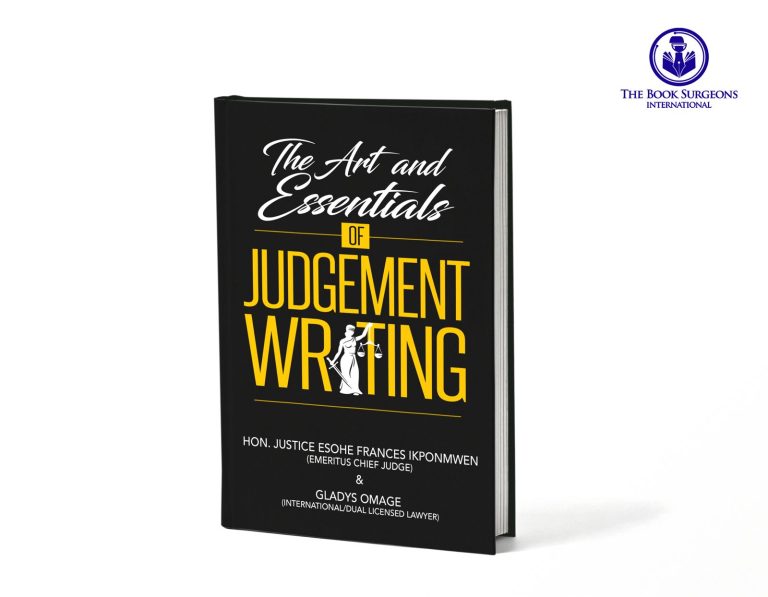
As Nigeria grapples with challenges like political interference, corruption, and public distrust in its institutions, the judiciary remains at the center of the nation’s most critical issues. The coauthors of a new book on jurisprudence, ‘The Art and Essentials of Judgment Writing’, have put forward innovative ideas and solutions on how to rebuild the public trust in judiciary, reinforce democracy, and ensure justice for all in Nigeria. Alluding to the fact that the Nigerian judiciary has seen its credibility weakened in recent years with many citizens skeptical about whether court rulings are free from external influence, Emeritus Chief Judge of Edo State, Justice Esohe Frances Ikponmwen and dual-licensed lawyer, Gladys Omage highlights that transparency in judgement writing is very critical for rebuilding public confidence.
The authors posited: ‘When judgments are written in clear, accessible language, the public can understand and follow the reasoning behind decisions.’ This transparency allows citizens to see that the judiciary is acting impartially, based on legal principles rather than political pressure. In cases involving electoral disputes or high-profile corruption trials, clear judgments can help reduce tension and prevent unrest.The book, ‘The Art and Essentials of Judgment Writing’ emphasizes that clear, logically structured judgments are crucial for closing these gaps. Corruption is one of Nigeria’s most deeply rooted problems, and the judiciary is frequently called upon to address it. From bribery scandals to the misuse of public funds, corrupt practices have been a disease on Nigeria’s political and economic landscape. However, the effectiveness of corruption trials often depends on the quality of the judgment that follows.
Ambiguously written rulings can create loopholes that corrupt individuals exploit, allowing them to escape justice. ‘A well-written judgment not only ensures that justice is served in a particular case but also sets a legal precedent for future cases, making it harder for corruption to thrive.’ The authors of “The Art and Essentials of Judgment Writing” argue that clear, transparent judgments serve as a defense against political interference. ‘When a ruling is well-reasoned and logically sound, it is much harder for external forces to challenge its integrity’, they noted.

While “The Art and Essentials of Judgment Writing” provides practical guidance on improving judgment writing, its broader mission is to contribute to Nigeria’s judicial reform efforts. The authors advocate for new standards that prioritize clarity and accessibility, making the legal process understandable for both legal professionals and the public. Improving judgment writing is not just a technical issue; it is a matter of public interest.
When citizens can easily follow the reasoning behind court rulings, they are more likely to trust the judicial process and feel that justice is being served.The Nigerian judiciary faces immense challenges, but the path forward lies in reforming how judgments are written. By making court rulings more transparent and accessible, the judiciary can help bridge the gap between legal institutions and the public. This transparency is critical in addressing pressing issues like corruption and ensuring fair elections. “The Art and Essentials of Judgment Writing”, offers a roadmap for creating a judicial system that is accountable, transparent, and trusted by all. The book’s message is clear: well-written judgments can help build a stronger, more just society, where the rule of law prevails, and no one is above it.